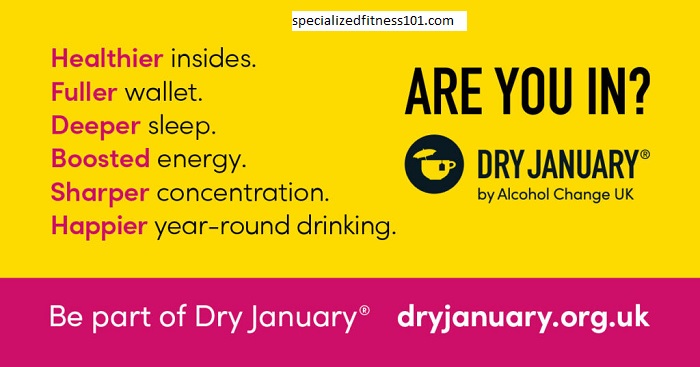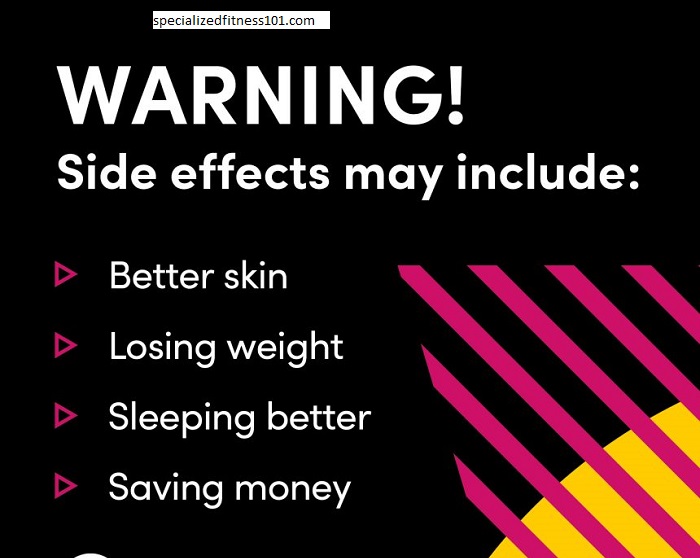The Health Benefits of Dry January: A Month of Sobriety for a Healthier YouL:
Every January, millions of people around the world vow to participate in “Dry January,” a month-long challenge where participants abstain from drinking alcohol. Launched as a public health initiative by Alcohol Change UK in 2013, Dry January has since gained much momentum around the world. For some, it is a challenge; for others, a chance to reevaluate their relationship with alcohol, to get healthier physically, or just give their body a break after the indulgences of December.

But what are the health benefits of abstaining from alcohol for a month?
Dry January:
In this article, we explore the physiological, psychological, and social advantages of Dry January, supported by research and expert opinions.
1. Improved Physical Health
Dry January:
Liver Health One of the most immediate benefits of going alcohol-free for a month is the relief it provides to the liver. The liver metabolizes alcohol, and excessive drinking can cause stress on the organ leading to conditions like fatty liver disease, cirrhosis, or alcohol-induced hepatitis. By abstaining from alcohol you allow your liver to recover. Research has shown that even one month of sobriety can greatly reduce the fat inside the liver and help reverse the early stages of liver damage.
There are better detoxification levels within the liver. Alcohol is toxic and breaks down much work from the liver over time. It gets to be at a standstill for a month after which all those vital operations have a full operation by the cleansing of other wastes, improving metabolism, and increasing energy.
Blood pressure High Blood pressure;
Dry January:
An abnormal rhythm and higher cases of heart attack. During Dry January, your heart goes on holiday. Research indicates that alcohol-free abstention is proven to result in lower blood pressure and the elimination of risks toward cardiovascular conditions. In one test, subjects stopped drinking alcohol, and their reports showed that just after one month, they decreased their blood pressure. Thus, it goes well with an individual who may also be suffering from wifromypertension risks as well as being a history user of a heart ailment.
Weight Loss and Improved Metabolism Alcohol is notoriously high in empty calories, with a typical alcoholic drink containing anywhere from 100 to 300 calories. When consumed regularly, these calories add up, contributing to weight gain. By going alcohol-free, you reduce your caloric intake significantly, making it easier to lose weight or maintain a healthy weight. Some studies reported that participants in Dry January experienced a drastic reduction in body weight, alongside a decrease in visceral fat; the harmful fat surrounding your organs.
2. Mental and Emotional Clarity
Dry January:
Better Mood and Reduced Anxiety Alcohol is a depressant, and though it may give some relief from stress or anxiety in the short term, it generally aggravates the condition in the long run. Many regular drinkers report irritability, anxiety, and even depression following the effects of alcohol consumption once the immediate effects have subsided. Dry January gives a chance to break the cycle.
There is usually an immense emotional balance reported after a month of sobriety. The mood improves, or rather the rate at which one’s mood changes improves. One attributes it to both the body and mind effects due to alcohol withdrawal and also the psychological benefits of greater control of their acts. Since your mood stabilizes due to the lack of ups and downs caused by drinking, the likelihood of anxiety or depression can decrease.

Liquor impairs cognitive function,
Dry January:
Affecting memory, concentration, and problem-solving ability. Even light drinking impairs clear thinking and essential processing of the mind. When you give your brain a break from alcohol, it will start to recover and feel better, thereby increasing mental clarity, creativity, and focus. The majority of Dry January participants experience a mental clarity jump. The lack of alcohol-induced fog leaves the person feeling more alert and ready to take on more tasks more effectively.
Also, the lack of alcohol gives your brain’s neurotransmitters, serotonin and dopamine, a chance to regain their balance, hence contributing to a more positive outlook and better cognitive functioning.
3. Improved Social and Lifestyle Factors
Dry January:
Better Relationships Sometimes, alcohol promotes problematic behaviors in a person like poor decision-making, arguments, or misunderstandings that can even strain relationships with friends, family, or coworkers. Sobering up for a month offers an opportunity to approach social situations with more mindfulness and control. Many people realize that they can communicate more effectively, resolve conflicts more smoothly, and make more meaningful connections when alcohol is out of the picture.
Another reason Dry January is important is that it can help assess if alcohol contributes to unhealthy social behaviors. If the use of drinking is a social crutch, then a period of abstinence can be the perfect time for reassessment and the adoption of healthier social interactions.
Financial Savings Alcohol can be pricey, especially when considering the cost of drinks at bars, restaurants, or social events. Dry January can save you a lot of money that would otherwise be spent on alcohol. Many people are surprised by how much they save after a month of sobriety, and some even use this extra money for healthier pursuits, like fitness classes, hobbies, or experiences that don’t revolve around drinking.
Increased Energy Levels Alcohol has a sedative effect on the body, and even though it initially makes you feel more relaxed, it depletes you of energy in the long run. Most people feel much more energetic and vibrant about doing anything after a month of being sober. It can be because you are sleeping well, eating nutritious food, and just not feeling drowsy as you do from alcohol’s depression effects.
4. Breaking Bad Habits and Building Long-Term Health Goals
Dry January:
Dry January can be a powerful tool for breaking the cycle of habitual drinking. It gives people a chance to reassess their drinking patterns and assess their relationship with alcohol. For some, it may be a stepping stone toward a permanent lifestyle change, while for others, it may simply provide a much-needed break from unhealthy drinking habits.
Alcohol and addiction risk For an alcoholic or addict or for anybody who has experienced alcohol dependency with a family history Dry January can sometimes act as the reset button and it allows reflecting on what alcohol plays in life and whether a person needs to get serious about abstaining. If sobriety feels powerful during Dry January then many participants who decide to make a more substantial lifestyle change regarding their alcohol avoidance after January comes.

5. The Science Behind Dry January
Dry January:
Science backs the numerous health benefits that come with taking a month-long break from alcohol. According to a study by the University of Sussex, those who abstained from alcohol for one month felt better physically and psychologically. Among the key findings:
70% of participants reported feeling better physically.
67% felt more in control of their health.
58% noticed an improvement in their mental clarity.
54% reported having a good quality of sleep.
Another report was the amount of alcohol intake went lower. Researchers working on the project BMJ Open published one piece of a study finding that Dry January participants reduced the amount of drinking in the longer term as a result, this may imply significant positive behavior changes.
